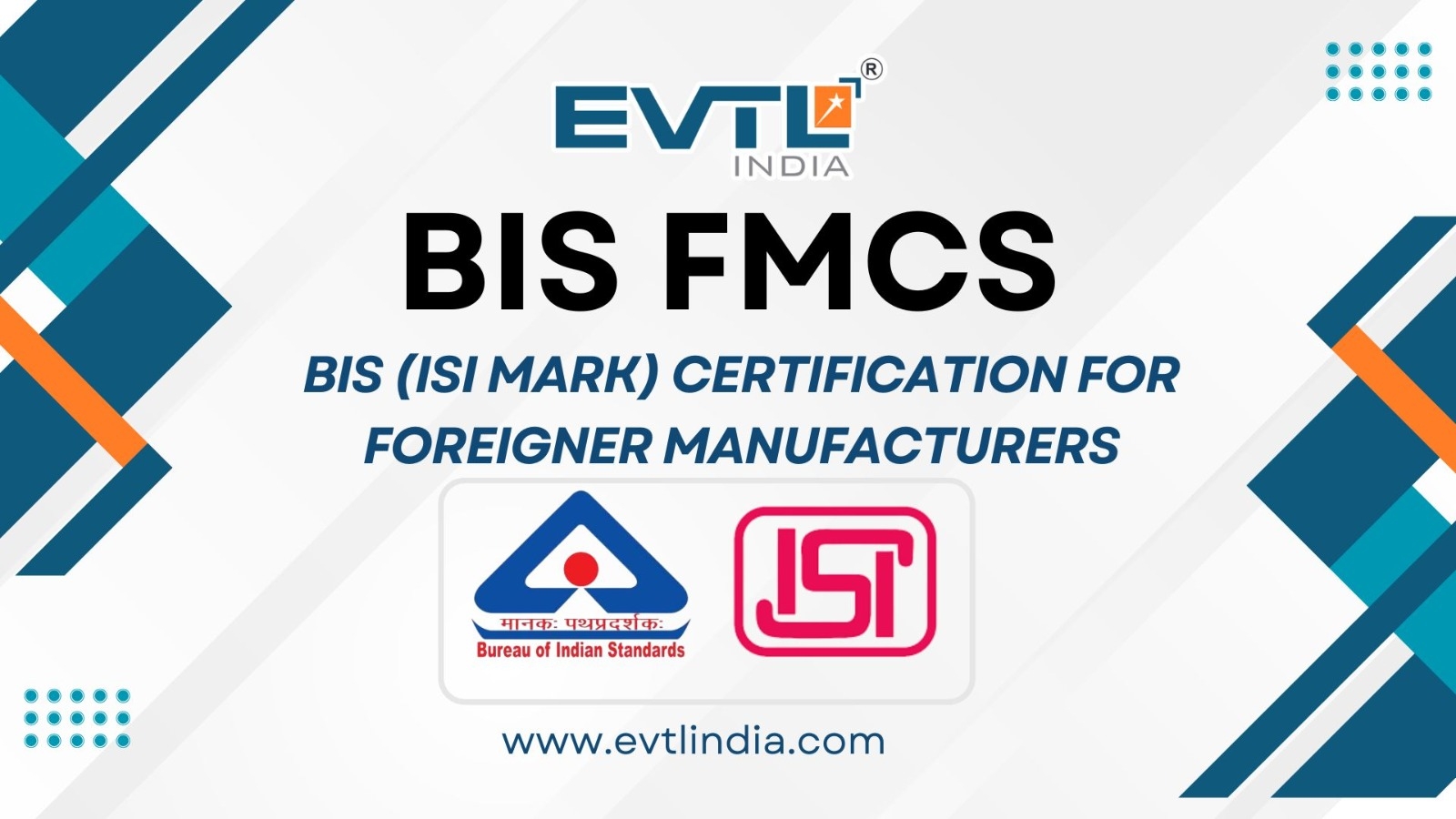In today’s fast-globalizing economy, exporting to India is an excellent growth opportunity for international manufacturers. But here’s the deal—you can’t just ship products to India without meeting the Bureau of Indian Standards' (BIS) regulations. Especially when it comes to industrial and safety-critical goods. That’s where the Foreign Manufacturers Certification Scheme (FMCS) becomes the game-changer.
🏢 Understanding the Role of BIS FMCS
The BIS FMCS is a compulsory product certification scheme designed specifically for foreign manufacturers. If you’re a company outside India planning to export items falling under BIS's mandatory certification list, you must obtain a BIS licence under FMCS before entering the Indian market.
But why is this important?
Because BIS-certified products are seen as safe, reliable, and compliant with Indian quality benchmarks. No certificate? No customs clearance. No market access.
🔍 Who Needs the FMCS Certification?
Any foreign company manufacturing products such as electrical appliances, steel items, pressure cookers, automotive components, or other items covered under mandatory IS standards must obtain BIS FMCS Certification.
From Chinese electronics to German machinery or Korean steel products—if you're manufacturing offshore and targeting Indian consumers, this scheme is non-negotiable.
🧭 Step-by-Step FMCS Process for Foreign Manufacturers
The FMCS process for foreign manufacturers may seem complex at first, but it becomes manageable when approached methodically. Here’s how it unfolds:
1. Check Product Scope
Not all products require BIS approval. First, verify whether your product is covered under the mandatory certification list (typically listed under Quality Control Orders or QCOs issued by various Indian ministries).
2. Application Filing
Fill the Form VI along with detailed documentation such as:
-
Product technical specifications
-
Factory layout
-
Manufacturing process flow
-
List of machinery and test equipment
-
Quality control and inspection procedures
3. Nominate an Authorized Indian Representative (AIR)
This is crucial. Since you're not based in India, the BIS requires you to appoint an Authorized Indian Representative (AIR) to handle correspondence and liabilities on your behalf.
4. Inspection of Manufacturing Premises
Once your documentation is verified, BIS officials will conduct an audit of your overseas facility. This is where many applications slow down or fail, especially if you're unprepared or unaware of audit expectations.
5. Product Sample Testing
Your product sample must be sent to a BIS-recognized Indian lab for testing. Only products that pass the prescribed Indian Standard (IS) will proceed further.
6. Grant of Licence
If the product passes testing and the audit report is satisfactory, BIS will issue the FMCS Licence, valid for one year (renewable).
🤝 Why You Need a BIS FMCS Consultant
The application process involves multiple technical documents, standards mapping, and coordination with Indian labs and authorities. A minor oversight—incorrect IS code, inadequate test facilities, or unclear factory processes—can derail the entire application.
This is where hiring a BIS FMCS Consultant is a smart investment. A professional consultancy can:
-
Assess your product readiness
-
Guide in documentation and lab testing
-
Prepare you for the BIS audit
-
Act as your FMCS Agent or liaise with one
-
Reduce turnaround time and risk of rejection
One such reputed consultancy is EVTL India, known for its hands-on support, regulatory clarity, and high approval rates for international clients.
🧑💼 Role of an FMCS Agent
An FMCS Agent (Authorized Indian Representative) acts as the legal face of your brand in India. They are accountable for:
-
Product compliance post-certification
-
Communication with BIS
-
Representing your company during inspections or queries
-
Ensuring market withdrawal in case of product recall or non-conformance
Choose an FMCS Agent carefully—it must be someone with BIS compliance knowledge, operational capability in India, and a clean reputation.
⚠️ Challenges in the FMCS Journey
Despite its structured approach, many foreign brands face common roadblocks:
-
Delays in audit scheduling
-
Unfamiliarity with Indian Standards
-
Mismatch in product documentation
-
Language and communication barriers
-
Sample testing complications
The smartest strategy? Work with an expert. Consultants like EVTL India offer end-to-end services from application filing to post-certification compliance monitoring.
🚀 Benefits of BIS FMCS Certification
-
Legal access to the Indian market
-
Increased consumer trust due to ISI mark usage
-
Competitive advantage over non-compliant imports
-
Avoidance of penalties, customs hold-ups, and market recalls
-
Ease of government tenders and bulk supply approvals
🌐 FMCS: Not Just a License, But a Market Entry Strategy
Think of FMCS not just as a license but as a strategic passport to tap into one of the world’s fastest-growing economies. With rising demand for quality products, Indian buyers and regulators are increasingly prioritizing BIS-certified imports.
So whether you're exporting home appliances, steel pipes, or electrical components, don’t wait till the last moment. Start your BIS FMCS Certification journey early with the help of a reliable BIS FMCS Consultant and ensure seamless access to the Indian market.
📞 Need Help With FMCS? Partner With EVTL India
EVTL India is your trusted compliance partner for all things related to BIS FMCS. With a team of industry experts, legal advisors, and technical engineers, we help foreign manufacturers secure their BIS licence without delays, stress, or confusion.
From initial consultation to post-licence support, we stand by your side as a dependable FMCS Agent and guide you every step of the way.


